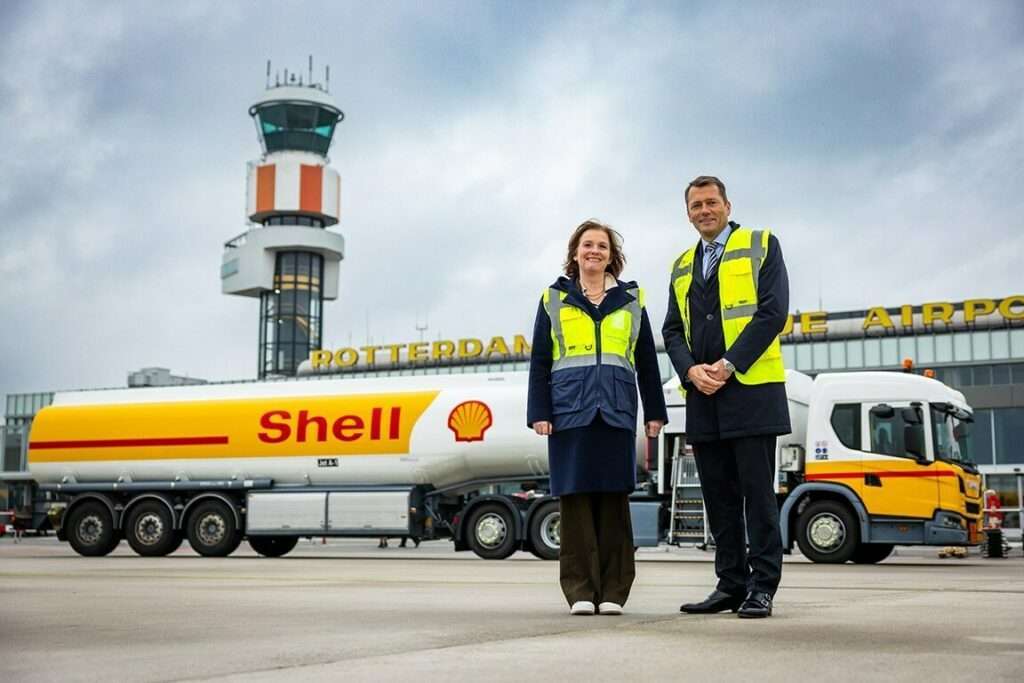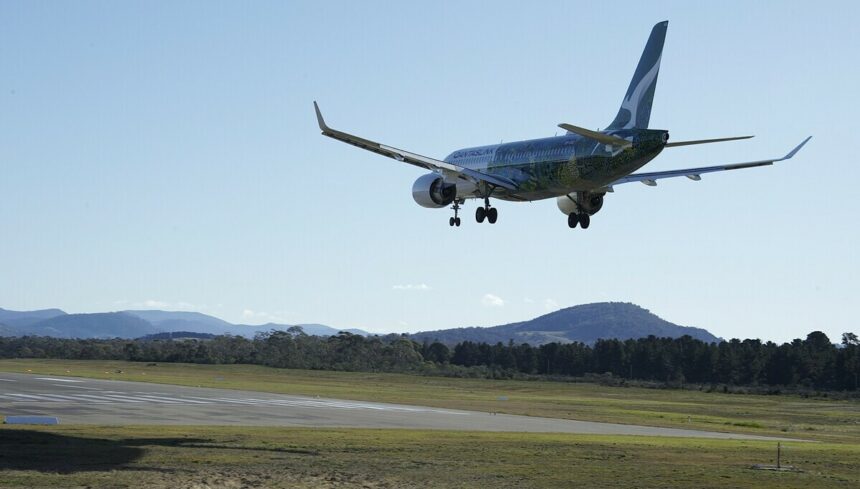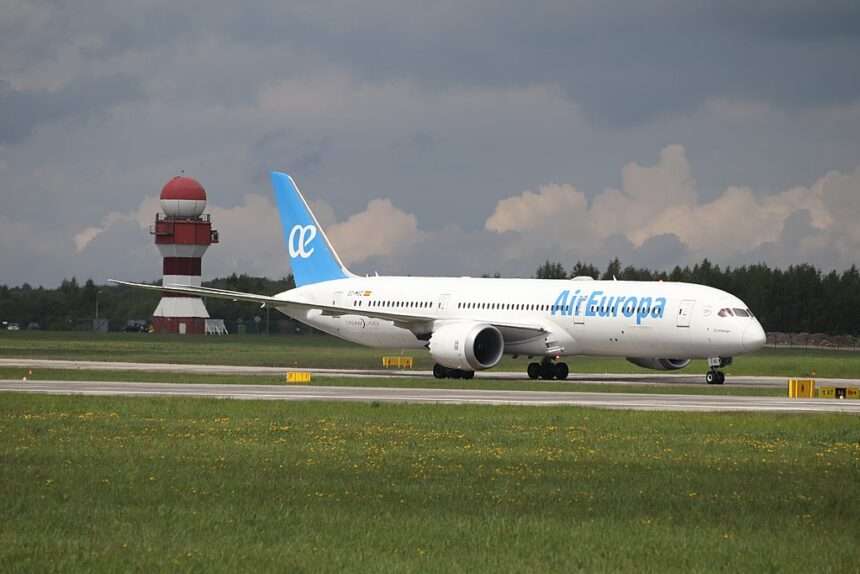Shell and Rotterdam The Hague Airport (RTHA) has signed a long-term agreement to blend sustainable aviation fuel on all aircraft fuelled at the airport, starting in 2024.
This strategic initiative goes beyond the European blending mandate of 6%, as RTHA aims to set a minimum target of 8%, aligning with the more ambitious goal of the Dutch aviation sector to achieve 14% by 2030.
Sustainable Fuel as the Future of Aviation
Wilma van Dijk, CEO of RTHA, emphasizes the crucial role sustainable aviation fuel plays in shaping the future of aviation.
According to her, this long-term agreement not only enables Shell to invest in advanced production facilities but also facilitates airlines in gradually transitioning to a new era of sustainable aviation.
Jan Toschka, President of Shell Aviation, expresses enthusiasm about supporting Rotterdam The Hague Airport in decarbonizing flights through the use of SAF.
He applauds the airport’s commitment to long-term SAF agreements, surpassing the levels mandated by the European Union.
Toschka highlights the significance of such ambition in creating stable demand, a pivotal factor for scaling up the supply and utilization of SAF.
[monsterinsights_popular_posts_inline]

The integration of sustainable aviation fuel brings forth a multitude of benefits. Notably, it can lead to an impressive average reduction of 80% in CO₂ emissions across the entire aviation chain.
Additionally, the use of sustainable fuel contributes to a decrease in soot and ultrafine particle emissions, further enhancing air quality, particularly at higher blending percentages.
Shell’s Investment: A Biofuels Facility for SAF
Shell is actively contributing to the sustainable aviation landscape by constructing an 820,000-tonnes-per-year biofuels facility at the Shell Energy and Chemicals Park in Rotterdam.
This facility is set to produce SAF and renewable diesel made from waste, underscoring Shell’s commitment to innovative, eco-friendly solutions.
Phasing in Sustainable Aviation Fuel
Despite the evident benefits, SAF remains more expensive than traditional fossil kerosene at present. Acknowledging this, and recognizing the need for large-scale production, RTHA is adopting a phased approach to blending requirements.
The long-term agreement with Shell provides transparency regarding the growth path and costs for users at the airport, ensuring a smooth transition.
The Need for Additional Blending
While the European blending mandate dictates a 2% SAF blend across the aviation sector by 2025, the Dutch aviation sector’s more ambitious target of 14% by 2030 requires accelerated efforts.
RTHA is poised to exceed these expectations by increasing the target for 2024 by an additional 2 percentage points.
Subsequent annual increases of at least one percentage point until 2030 will result in a total additional increase of at least 8 percentage points, surpassing the statutory 6%.

Click the banner to subscribe to our weekly newsleter.

Click the photo to join our WhatsApp channel so then you can stay up to date with everything going on in the aviation industry!









